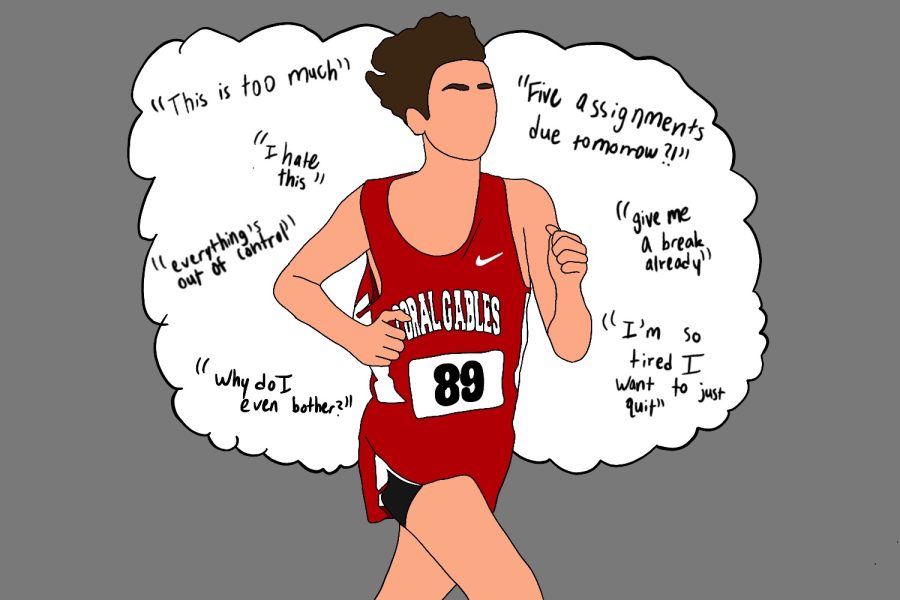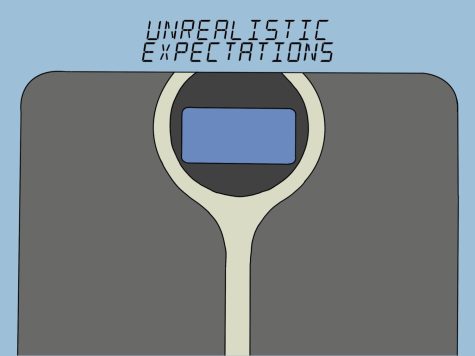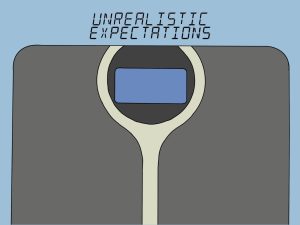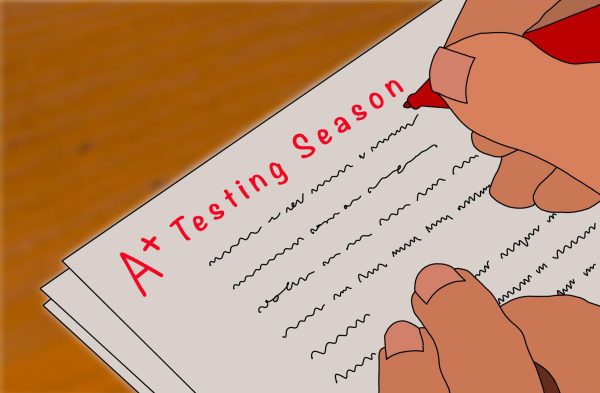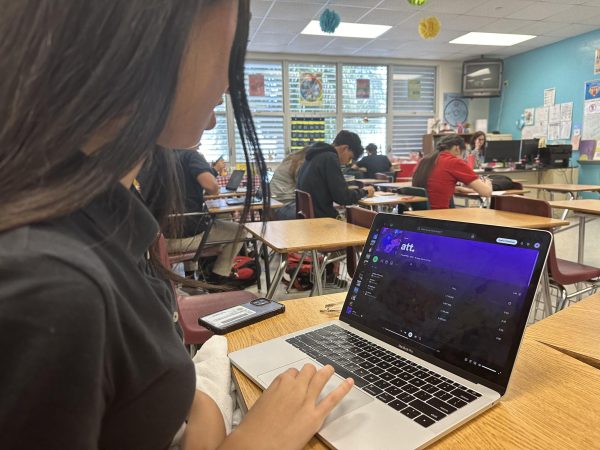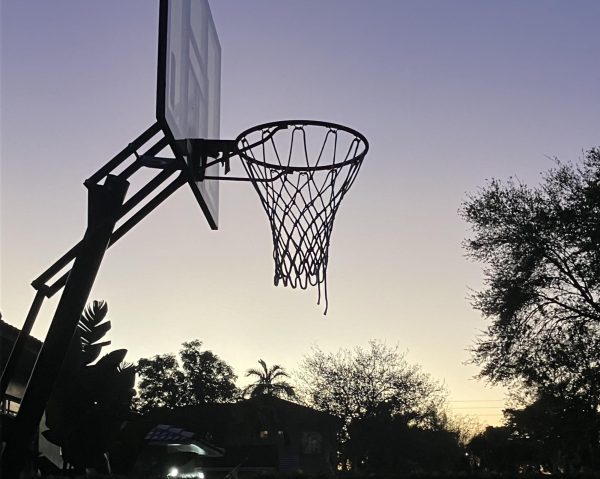The Pressures of Playing Sports
A depiction of how athletes can feel as the result of the pressures and stress they deal with.
Sports, once a fun after-school activity or a chance to bond with friends, have evolved into much more for many student-athletes, and not necessarily in a good way. Whether it comes to balancing classes with practices, bad athletic experiences or choosing between sports, there are many stressful aspects of the student-athlete lifestyle that can leave these teens feeling burnt out.
The title of “student-athlete” is one well respected and for good reason. No matter what academy students are in, high school is no joke. Now imagine playing a sport for three hours every day after school six days a week and maintaining a high grade point average on top of it. Some athletes describe it as draining while others even consider quitting to be able to focus their time on keeping up with school work. On the bright side, coaches and trainers at Coral Gables Senior High prioritize academic success and ensure that their athletes always stay on top of their grades.
“My goal as an IB teacher and as a coach is really just the whole student. You want to see somebody be able to improve and be able to balance their schoolwork with their athletic training and get better at both,” Coach Nelson said.
Receiving scholarships has always been one of the major drives for athletic success in high school. Getting accepted into an esteemed university is an idea that attracts students and parents alike, and sports may serve as a way to secure scholarships if academics are not a student’s forte. The pressure of even planning for college can be a lot for kids to handle, and the issue becomes even more troubling when students are forced to do a sport they are not truly passionate about just to get into a school.
On the topic of parents, those trying to live vicariously through their children can significantly damage athletes’ sense of pride in their work. Many parents have lived and learned from their past high school athletics mistakes and try, usually with good intentions, to prevent their child from making the same mistakes, or they push them to do things they wish they would have done. However, this tends to be a significant stressor for student-athletes, leaving them with immense pressure to live up to their parent’s great expectations. These demands and excessive interference from parents may ruin what should be a fun experience for students.
He pushed me way too hard and would get really mad at any mistake I made. He started benching me for those mistakes and pushing me harder and harder, which was not motivating at all. The way I was being treated by him really made me want to stop. Practices were not fun anymore and I became scared to play soccer,
— senior Helena Macedo
Bad experiences do not discriminate; everyone has off days every now and then. However, certain adverse experiences can be particularly impactful when it comes to athletics, potentially spelling the end of an athlete’s career. Whether this stems from a contemptible coach or a devastating injury, these situations can take a considerable physical and mental toll on young athletes.
Sometimes, an athletic trainer is simply not compatible with an athlete, not using the right training techniques to properly cater to a child’s needs. Other times, coaches may push their athletes too hard, risking burning out their athletes by overtraining them. Alternatively, a coach may not push athletes enough, possibly leaving athletes stuck in place without making any progress. Coaches being too harsh and picking favorites are other blunders coaches may make that drive athletes away from their sport in an effort to avoid the trainer.
Recovering from a previous injury can also take a substantial mental toll on those getting back into their sport. Feeling the competition from their teammates and remembering previous success might pressure an athlete to speed through their recovery, which could end in an even worse situation.
Multitalented athletes also tend to dip their toes into numerous activities, learning about what they have fun doing and which sports they are best at. However, many of them are faced with the challenge of choosing between two favorable options when trying out for high school teams. A situation like this might happen when two sports occur in the same season or when a school does not offer the sport an athlete is best at. A regretful decision might leave a student feeling unmotivated or resentful toward their chosen sport.
“I’ve been horseback riding since I was four and recently had to take a break to make room for volleyball, which was heartbreaking. But, it was necessary if I were to have time to play volleyball and do school, I couldn’t do all three,” freshman Isabella Cruz said.
While athletics provide students with benefits like meeting new people and making new friends, being a successful student-athlete is not always as glorious as it seems, plenty of pressure and stress go into making their aspirations a reality.
Your donation will support the student journalists of Coral Gables Senior High School. Your contribution will help us cover our annual website hosting costs.

Avril Donner, a freshman in the International Baccalaureate program, is pumped to start her first year in CavsConnect as a staff writer. She strives to...

Isabel Donner is a senior in the International Baccalaureate program, closing off her last year at Coral Gables Senior High as a copy editor for CavsConnect....

Anthony Abrahantes is a senior in the International Baccalaureate program. Born in Miami, Anthony is the middle child in his family. This will be his third...


